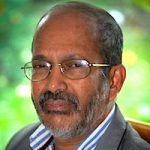A Brief Colonial History Of Ceylon(SriLanka)
Sri Lanka: One Island Two Nations
A Brief Colonial History Of Ceylon(SriLanka)
Sri Lanka: One Island Two Nations
(Full Story)
Search This Blog
Back to 500BC.
==========================
Thiranjala Weerasinghe sj.- One Island Two Nations
?????????????????????????????????????????????????Sunday, April 29, 2018
Endemic Judicial & Police Corruption In Sri Lanka; Recent Revelations Should Be An Eye Opener!

The Video of a speech by a young ‘whistle-blower’ lawyer Sugandhika Fernando exposing
the utter corruption and deterioration of the standards in the system
of justice and law enforcement in Sri Lanka, has already gone viral. She
particularly mentioned many acts of misconduct such as drunken/corrupt
judges, corrupt Mudliyars/court administration staff, and also senior
lawyers and Police officers who have been abusing the system to enrich
themselves. What she exposed boldly and publicly about the vices of
corruption, bad practices and sexual exploitation within the system of
law, has also been a pet topic of UNP Deputy Minister cum
actor Ranjan Ramanayake for some-time, both within and outside the
Parliament which landed him in hot water, with a legal Mafia chasing him
from behind gunning for his blood. Besides, many members of the legal profession as well as clients too has been sharing similar views in private hush talks. Nagananda Kodituwakku is
another rights lawyer who has spearheaded a campaign to clean up the
stables long polluted by rogue corrupt elements both in the Bench and
the Bar.
In an interview with Daily Mirror (
29/08/2017) Ranjan Ramanayake opined ‘There are instances where wrong
verdicts are given. There are instances where sexual bribes are given. A
judge had been accused of raring a servant. People talk about them. A
former Chief Justice admitted that he gave a wrong judgement during his
tenure. What did the BASL chief do about these judicial officers and
lawyers. Aren’t we going to penalize these judicial officers? There are
instances where people threw excreta at judges. Some Sri Lankan lawyers
have been identified as ones who hold black money by Panama papers. I am
going to be penalized when I talk about them. Wrong doers are spared.
Only the corrupted law enforcement officers start panicking when one
talks about corruption in the judiciary. .. Late Prime Minister John
Kotelawala said he would apply tar on the heads of corrupted monks. All
monks should not panic about this statement. Likewise only corrupted
judges and lawyers should panic about my statement.. My statements are
based on what people come and tell me about lawyers.. People suffer as a
result of shortcomings in the judiciary”. However, there is also a
counter view that public attacks by political figures against the
judiciary, can further undermine judicial independence and public
confidence in the Judiciary. Nevertheless, it appears that judicial
corruption is endemic. Political interference in the judicial process by
influencing or intimidating judges were common since JRJ times with MR
being the worst in that respect.
As they say ‘fish rots from the top’, Sarath N. Silva as
Chief Justice sacrificed the very notion of an independent judiciary
and became a servant of the Executive Presidential system. He
shamelessly sacrificed the independence of the judiciary allowing the
Executive President to play around with the process of law. How he later
came on a political platform and apologized to the nation about letting
MR go in the infamous Hambantota case is an open secret and shameful.
Then the country had another CJ Mohan Pieris appointed
by MR, who virtually acted as his Majesty’s loyal servant in delivering
judgments. He reportedly went before the Present President Sirisena too
to offer his services on the same terms. Such was the sad tale of
interferences with the independence of the judiciary in Sri Lanka. We
have also seen many reported acts of misconduct of many judges too
serving in the lower benches including bribery and soliciting sexual
favours. There was also another new tradition of judges which came to
light in the recent
past , inviting politicians to parties to sign as witnesses at their
children’s weddings. There were thus clear cases of Supreme Court judges
continuing to have personal and social relations with the executive
branch specially during MR’s regime,especially despite being a
government whose behaviour was extremely questionable from the viewpoint
of democracy and the Rule of Law.
Kishali Pinto-Jayawardena, a legal commentator captured this sad reality in an article to Colombo Telegraph in
2012; ‘Exponentially increased contempt displayed by the executive for
Sri Lanka’s judiciary was manifested in recent years with politicians
from the highest levels downwards seeking to influence the outcome of
cases, with criminals having political backing openly disregarding
arrest warrants and with the judiciary being treated as an appendage of
the government’. As a prominent rights activist lawyer Basil Fernando
also opined ‘The real test is as to whether the system of law and the
administration of justice have gotten back to the point where it can be
honestly claimed that the system functions well and that every element
of the system has gotten rid of the corruption that it had been exposed
to. Such victories should not be lightly claimed for all aspects of
individual freedoms and the whole life of the nation depends on such
things, like the way blood runs through the human body. The most
essential element to consider is whether the competence of the judiciary
that has suffered past interference has been restored fully’ and asks
the question: ‘Does
the legal process in Sri Lanka function sufficiently well that we could
claim today that the due process of law can be assured within our
system? If one is to go by the large numbers of litigants, who are the
ultimate judges on this issue, we cannot yet claim such a situation has
dawned’.


